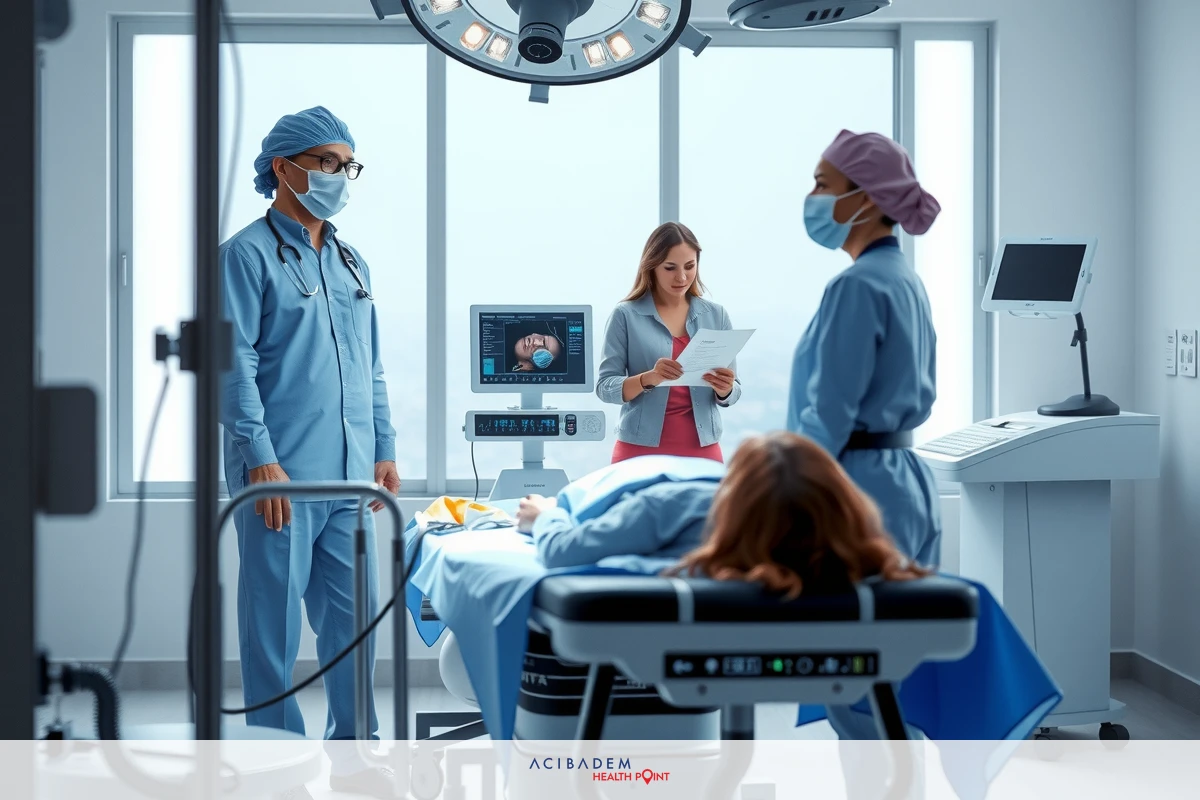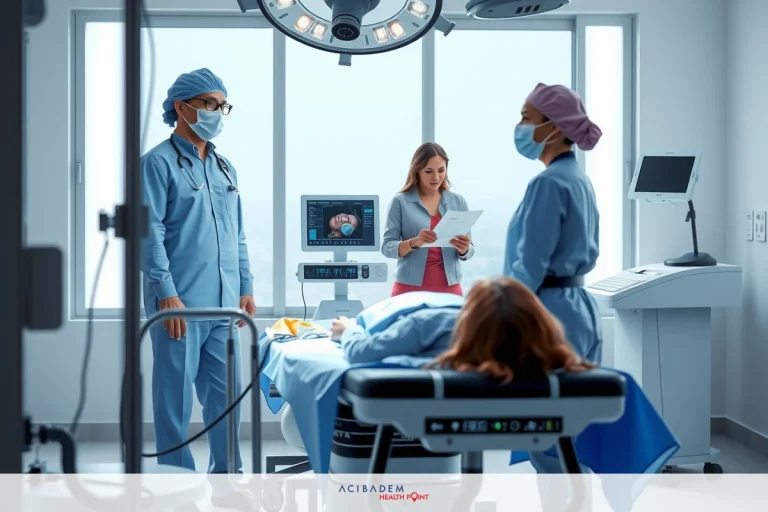Is General Anesthesia Safe for Rhinoplasty?
Is General Anesthesia Safe for Rhinoplasty? Imagining a journey through the human body, anesthetics play the role of a magic carpet. They carry us into unconsciousness so surgeons can mend or modify without causing discomfort. When considering rhinoplasty, general anesthesia often comes into play.
While many might find the term ‘general anesthesia’ intimidating because it involves complete unconsciousness during surgery, others see it as a safe haven – ensuring they remain oblivious to all surgical proceedings. There are countless measures and precautions that come hand in hand with this type of anesthesia; these ensure safety is paramount during any procedure such as rhinoplasty.
The question of insurance coverage for general anesthesia also arises frequently. With policies differing across companies, it becomes crucial to understand your individual coverage scenario before proceeding with any medical intervention involving general anesthesia.
Benefits of General Anesthesia
The use of general anesthesia in medical procedures, particularly rhinoplasty, brings several advantages. For starters, under general anesthesia, a patient is entirely unconscious which allows the surgeon to work without causing discomfort or distress to the patient. This level of sedation ensures that patients remain completely unaware and free from any potential pain during their procedure.
General anesthesia can provide an optimal operating condition for surgeons performing rhinoplasty. It offers muscle relaxation and immobility which helps the surgeon perform with greater precision and safety. Furthermore, it eliminates all reflex actions that could potentially interfere with surgical proceedings. Therefore, while under general anesthesia’s influence during surgery, any involuntary movements such as coughing or twitching are eliminated – making it safer for both the patient and doctor.
However beneficial it may be though one cannot overlook its risk factors; no medical intervention comes without them. But these risks are minimized by following stringent precautions before administering this type of anesthesia. The careful monitoring of vital signs like heart rate and blood pressure throughout the procedure ensures a safe environment under controlled conditions.
Consideration towards insurance coverage for using general anesthesia in rhinoplasty surgeries since policies differ across companies. Navigating through your individual policy details becomes crucial here because understanding what aspects your insurance covers will remove unnecessary stress post-surgery regarding unexpected bills.
Safety Measures and Precautions
When discussing the safety of general anesthesia in rhinoplasty, it’s crucial to understand the many safety measures and precautions that accompany its use. These guidelines exist to ensure a safe environment for both patient and surgeon during the procedure.
- Preoperative Health Evaluation: A comprehensive health evaluation is conducted before administering

Image of a medical team in an operating room with patients on the surgical tables. The environment is sterile, and everyone is wearing medical attire to maintain hygiene. general anesthesia. This includes a thorough review of medical history, medication usage, allergies, lifestyle habits like smoking or alcohol consumption, and physical examination.
- Anesthesia Planning: An anesthesiologist will carefully plan the type and dosage of anesthetic based on factors such as age, weight, overall health status of patients undergoing rhinoplasty.
- Monitoring During Procedure: Constant monitoring is carried out throughout surgery under general anesthesia including heart rate, blood pressure levels, breathing rate & oxygen saturation level in blood are some key parameters closely observed.
- Presence of Qualified Personnel: Only qualified personnel administer general anesthesia ensuring professional handling at all times during the procedure; these include trained doctors (anesthesiologists) or nurse anesthetists who oversee its administration & patient’s wellbeing continuously.
- Post-Procedure Monitoring: Post-operative care following any surgical intervention involving general anesthesia ensures immediate response should complications arise post-surgery – this involves ongoing monitoring until full recovery from effects of given drugs.
Ensuring optimal safety when using general anesthesia requires extensive preparation beforehand as well as vigilant oversight during procedures – all necessary steps taken
towards minimizing risks related with applying this form of sedation within medical operations such as rhinoplasty surgeries.
Consulting Your Insurance Company
Embarking on a medical journey such as rhinoplasty, you are likely to find yourself wondering about the financial implications. One of the most significant considerations is whether your insurance company covers general anesthesia in its policy. It becomes crucial then, to dive into your specific coverage details and understand what aspects of your procedure would be covered.
While each insurance company has unique policies regarding medical procedures like rhinoplasty, generally speaking, they often consider it under ‘cosmetic’ surgery unless medically necessary. Therefore, understanding how they classify this surgery is vital when evaluating coverage for general anesthesia usage during rhinoplasty surgeries. Typically though, if a procedure classifies as ‘medically necessary’, many companies tend to cover costs associated with general anesthesia.
Navigating through these clauses can seem daunting at first; however, reaching out to customer service representatives from your respective insurer can simplify this process drastically. These professionals are equipped with all required knowledge needed to guide you through their policies and help determine how much of your procedure – including the application of general anesthesia – will receive coverage.
Endeavoring in clear communication with one’s insurance provider before proceeding with any surgical intervention ensures that there won’t be unexpected bills post- surgery leading to unnecessary stress during recovery period – ultimately making the overall experience more seamless for patients undergoing procedures involving use of general anesthesia such as Rhinoplasty.
Frequently Asked Questions
What is the role of general anesthesia in rhinoplasty?
General anesthesia plays a crucial role in ensuring patient comfort during rhinoplasty. It induces complete unconsciousness, eliminating any potential discomfort or distress that might be caused by surgical proceedings.
How safe is general anesthesia for use in Rhinoplasty procedures?
The safety of using general anesthesia for any medical procedure, including rhinoplasty, relies heavily on following stringent guidelines and precautions. This includes preoperative health evaluations, careful planning of anesthetic dosage, constant monitoring during surgery and immediate post-operative care.
Will my insurance company cover the cost of general anesthesia used for my rhinoplasty surgery?
Coverage varies significantly across different insurance companies and individual policies. It's essential to consult with your provider about their specific coverage criteria regarding usage of general anesthesia in surgeries like Rhinoplasty.
Is there anything I need to do before receiving general anesthesia for Rhinoplasty?
Is there anything I need to do before receiving general anesthesia for Rhinoplasty?











